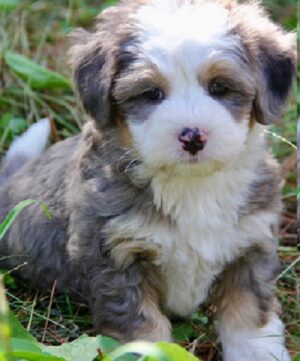Description
The Doberman Pinscher, often referred to simply as the Doberman, is a distinctive and noble breed known for its elegance, intelligence, and unwavering loyalty. Originally developed in the late 19th century by a German tax collector named Karl Friedrich Louis Dobermann, the breed was created with a specific purpose in mind – to be a steadfast guard dog and companion. Over the years, Dobermans have gained popularity worldwide, not only for their formidable appearance but also for their versatility in various roles, including as family pets, working dogs, and even therapy dogs.
This article will explore the fascinating history, physical characteristics, temperament, training requirements, health concerns, grooming needs, and the unique role of Dobermans in both family and professional settings. Whether you are interested in adopting a Doberman or simply want to delve into the intriguing world of this exceptional breed, this comprehensive guide will provide valuable insights and information.
1. Introduction to the Doberman breed
1.1 The Doberman Pinscher: A Brief Overview
Meet the Doberman Pinscher – a breed known for its sleek appearance, intelligence, and loyalty. Often referred to as the “Dobie,” this breed has gained popularity worldwide for its impressive abilities as a working dog and its loving nature as a family companion. But there’s more to the Doberman than meets the eye!
1.2 Popularity and Recognition of the Doberman Breed
The Doberman Pinscher has undoubtedly caught the attention of dog lovers around the globe. With their striking looks and undeniable charm, it’s no wonder they’ve become a popular choice for many households. In fact, the American Kennel Club consistently ranks the Doberman as one of the most popular breeds in the United States. Their reputation as loyal and protective guardians has also earned them recognition in various working dog competitions and police forces worldwide.
2. History and origins of Doberman Pinschers
2.1 The Creation of the Doberman Pinscher
The Doberman Pinscher owes its existence to a man named Louis Dobermann, a tax collector hailing from Germany in the late 19th century. Seeking a loyal and fearless companion to accompany him on his rounds, Dobermann selectively bred various dog breeds, including the Rottweiler, German Pinscher, Greyhound, and Weimaraner, to create his ideal working dog.
2.2 Development and Purpose of the Breed
The Doberman Pinscher was primarily bred for protection and guardian duties. Their impeccable loyalty, intelligence, and agility made them a perfect fit for tasks such as protecting their owners, herding livestock, and even accompanying soldiers on the battlefield. Over time, their role shifted to that of a versatile working dog, excelling in police work, search and rescue operations, and competitive obedience trials.
3. Physical characteristics and breed standards
3.1 Appearance and Size of Dobermans
Dobermans are well-known for their athletic and powerful physique. With their deep chest, well-muscled body, and a distinct wedge-shaped head, they effortlessly exude strength and elegance. These medium to large-sized dogs typically stand between 24 to 28 inches tall at the shoulder and weigh between 60 to 100 pounds, depending on their sex and build.
3.2 Coat Colors and Patterns
One of the striking features of Dobermans is their coat color. The breed standard recognizes four main colors: black, red, blue, and fawn. Additionally, Dobermans may have markings such as rust or tan on their face, paws, chest, and tail. Their short, sleek coat not only adds to their overall regal appearance but also makes grooming a breeze.
3.3 Breed Standards and Recognized Varieties
The Doberman Pinscher has specific breed standards that define their appearance and structure. These standards encompass various aspects, including their body proportions, head shape, ear shape and set, tail carriage, and overall movement. Recognized by kennel clubs worldwide, Dobermans come in two main varieties: the show or conformation Doberman, bred for the show ring and breed standards, and the working or performance Doberman, bred for their working abilities and athleticism.
4. Temperament and personality traits
4.1 Doberman Temperament: General Overview
Beneath their imposing exterior lies a dog with a heart of gold. Dobermans are renowned for their loyal and protective nature, making them fantastic family companions and guardians. While their reputation may precede them as fierce protectors, Dobermans are also incredibly affectionate, forming strong bonds with their human family members.
4.2 Intelligence and Trainability
The Doberman Pinscher is a highly intelligent breed that thrives on mental stimulation and challenges. This intellect, combined with their eagerness to please their owners, makes them easy to train. Whether it’s obedience training, agility exercises, or scent work, Dobermans excel in a variety of training activities, making them a popular choice for competitive events.
4.3 Protective Instincts and Loyalty
Dobermans are born protectors. Their natural instincts to guard and defend their loved ones are deeply ingrained. They are known for their unwavering loyalty, always ready to lay down their lives for their family if the situation calls for it. This protective nature, combined with their intelligence and agility, makes them an excellent choice for families looking for a reliable and dedicated companion.
So, whether you’re drawn to the Doberman Pinscher for their striking appearance, their intelligence, or their unwavering loyalty, there’s no denying that these dogs are something truly special. With the right love, care, and training, a Doberman can become a cherished member of your family, bringing joy, protection, and endless laughter into your life.
5. Training and socialization requirements
Being a responsible Doberman owner means understanding the importance of training and socialization for your furry friend. These two aspects are crucial in shaping their behavior and ensuring they become polite, well-behaved companions.
5.1 Importance of Early Training and Socialization
Early training and socialization are vital for Dobermans to grow into well-rounded dogs. Starting from a young age, exposing them to different people, animals, and environments helps them develop confidence and good manners. It also prevents behavioral issues like aggression and anxiety later in life.
5.2 Training Methods and Techniques
When it comes to training your Doberman, positive reinforcement is the way to go. These intelligent dogs respond best to reward-based methods like treats, praise, and play. Consistency and patience are key, and using force or punishment can lead to fear and aggression.
5.3 Addressing Behavioral Challenges
Dobermans, like any other breed, may face behavioral challenges. Whether it’s excessive barking, chewing, or pulling on the leash, these issues can be addressed through training, consistency, and understanding. Seeking guidance from professional dog trainers can be immensely helpful in tackling these challenges effectively.
6. Health issues and common medical concerns
When it comes to the health of your Doberman, proactive care and regular vet check-ups are essential. Being aware of common genetic health issues, practicing preventive measures, and providing adequate care ensures your furry friend stays healthy and happy.
6.1 Common Genetic Health Issues in Dobermans
Dobermans are prone to certain genetic health issues, such as dilated cardiomyopathy, hip dysplasia, and von Willebrand’s disease. Regular screenings, including cardiac evaluations and X-rays, can help identify and manage these conditions early on.
6.2 Regular Health Maintenance and Care
Maintaining your Doberman’s health involves routine vaccinations, regular exercise, and a balanced diet. Regular grooming, dental care, and parasite prevention are also important aspects of their overall well-being.
6.3 Tips for Preventive Health Measures
To prevent health issues, ensuring your Doberman receives a proper diet, regular exercise, and mental stimulation is essential. Additionally, scheduling annual check-ups, maintaining a healthy weight, and providing a safe environment are all part of preventive health measures.
7. Exercise and grooming needs of Dobermans
Dobermans have an active and energetic nature, making regular exercise and mental stimulation crucial for their well-being. Additionally, keeping up with their grooming needs helps maintain their appearance and overall hygiene.
7.1 Physical Exercise Requirements
Dobermans thrive on physical activity. Aim for at least an hour of exercise each day, including activities like walking, running, or playing fetch. Engaging in interactive games not only keeps them physically fit but also stimulates their sharp minds.
7.2 Mental Stimulation and Enrichment Activities
Alongside physical exercise, providing mental stimulation is vital for Dobermans. Puzzle toys, obedience training, and interactive games can help keep their intelligent minds engaged and prevent boredom-induced behavioral problems.
7.3 Grooming Tips and Maintenance
While Dobermans have short coats, they still require regular grooming. Brushing their coat with a soft bristle brush helps remove loose hair and distribute natural oils. Additionally, trimming nails, cleaning ears, and brushing teeth are all important aspects of their grooming routine.
8. Doberman as a family pet and working dog
Dobermans are known for their loyalty and protective instincts, making them excellent family companions. Additionally, their intelligence and versatility allow them to excel in various working roles. When considering a Doberman, finding a reputable breeder ensures a healthy and well-adjusted addition to your family.
8.1 Dobermans as Family Companions
Dobermans bond closely with their families and are particularly affectionate towards children. They can be loving, playful, and protective, making them wonderful companions for active households. However, it’s important to ensure they receive proper training and socialization to be well-behaved family members.
8.2 Dobermans in Various Working Roles
With their intelligence and versatility, Dobermans excel in various working roles. They have been successfully employed as service dogs, search and rescue dogs, therapy dogs, and even in law enforcement. Their dedication, loyalty, and trainability make them natural choices for these tasks.
8.3 Finding a Reputable Doberman Breeder
When considering getting a Doberman, it’s crucial to find a reputable breeder. Look for breeders who prioritize the health and well-being of their dogs, conduct proper health screenings, and provide a loving environment for the puppies. A reputable breeder will be open to answering questions and ensuring the right match between the owner and the dog. Remember, adopting from a shelter or rescue organization is also a commendable option to consider.
In conclusion, Doberman Pinschers are remarkable and multifaceted dogs that possess a blend of strength, intelligence, and loyalty. From their origins as a guardian breed to their role as beloved family pets and working companions, Dobermans have left an indelible mark on the world of dogs. While they require proper training, socialization, and care, the rewards of having a Doberman in your life are immeasurable. Whether you are drawn to their regal appearance, their unwavering devotion, or their versatility in various tasks, the Doberman breed continues to captivate and inspire. So, if you are considering adding a Doberman to your family or simply want to appreciate their remarkable qualities, embracing this extraordinary breed is sure to bring joy, companionship, and a loyal friend for life.
FAQ
1. Are Doberman Pinschers aggressive?
Doberman Pinschers have a reputation for being protective and alert, but they are not inherently aggressive. Like any dog breed, their temperament is influenced by various factors, including genetics, socialization, and training. With proper socialization, training, and responsible ownership, Dobermans can be friendly, gentle, and well-behaved.
2. Do Dobermans require a lot of exercise?
Yes, Dobermans are an active breed that requires regular exercise to maintain their physical and mental well-being. They thrive with daily physical activity, such as walks, runs, playtime, and mental stimulation. Adequate exercise helps prevent boredom, anxiety, and destructive behavior in Dobermans.
3. Are Dobermans good with children?
Dobermans can be excellent family dogs and are often good with children. However, like any interaction between dogs and children, supervision and proper introductions are essential. Early socialization and positive experiences with children can help ensure a harmonious relationship between Dobermans and kids. It is crucial to teach children how to interact respectfully and gently with dogs to maintain a safe environment for both parties.
4. What are some common health issues in Dobermans?
Doberman Pinschers may be prone to certain genetic health issues, including dilated cardiomyopathy (DCM), hip dysplasia, hypothyroidism, and von Willebrand’s disease. Regular veterinary check-ups and screenings are necessary to monitor and address any potential health concerns. Working with a reputable breeder who conducts health tests on their breeding dogs can help reduce the risk of inherited health problems.
https://en.wikipedia.org/wiki/Puppy
https://en.wikipedia.org/wiki/Dog
https://en.wikipedia.org/wiki/Dog_breed
https://dogs.ie/
https://www.nextdaypets.com/directory/dogs/sale/
https://www.lancasterpuppies.com/
https://www.puppies.co.uk/
https://www.europuppy.com/
https://www.pets4homes.co.uk/sale/puppies/
https://www.puppyspot.com/puppies-for-sale
https://www.pups4sale.com.au/
https://petsforhomes.com.au/puppies-dogs-for-sale/
https://puppies.com/
https://www.freeads.co.uk/uk/buy-sell/pets/dogs/
https://www.gumtree.com/pets/pets-for-sale/dogs/uk/srpsearch+puppies
https://www.preloved.co.uk/classifieds/pets/dogs
https://www.marshallspetzone.com/196-pups-and-kittens
https://www.ukpets.com/dogs-for-sale
https://www.petfinder.com/dogs-and-puppies/adoption/finding-a-dog/puppies-for-sale/
https://marketplace.akc.org/puppies
https://waratahpuppies.com.au/puppies-and-dogs-for-sale/
https://petclassifieds.com/ad_category/dogs/
https://puppyfinder.com/
https://www.petmd.com/dog/general-health/teacup-dogs-puppies
https://www.thesprucepets.com/cute-teacup-dog-breeds-4587847
https://www.dailypaws.com/living-with-pets/pet-compatibility/cutest-puppies
https://www.goodhousekeeping.com/life/pets/g4531/cutest-dog-breeds/
https://www.canadapups.com/
https://www.ckc.ca/Choosing-a-Dog/PuppyList/Default.aspx
https://getapuppy.ca/
https://www.kijiji.ca/b-dogs-puppies/canada/c126l0




